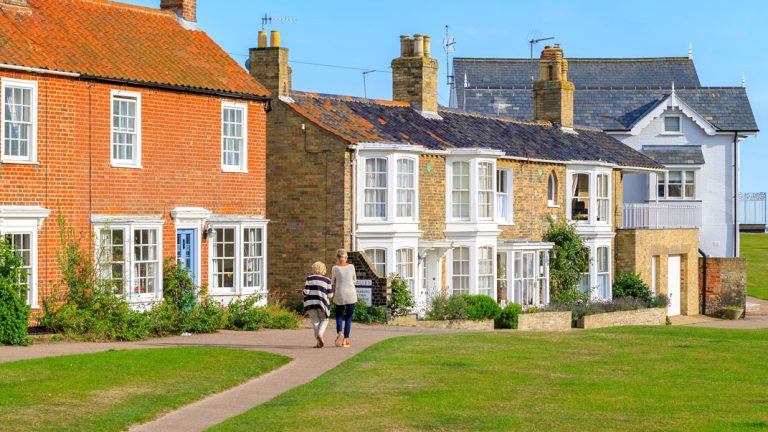Legal requirements when letting a holiday property

Owning and managing a holiday let comes with a number of responsibilities. To help you meet your obligations and stay on the right side of the law, we explore the legal requirements for renting out a holiday home.
What are the rules for holiday letting?
To be classed as a furnished holiday let and qualify for certain tax reliefs, the property must meet certain conditions:
It must be run with the intention of making a profit
If you only rent the property to friends and family at a reduced rate, it won’t count as a furnished holiday let. You can rent the property at a discount, but your main aim should be to make money from the let.
It must be commercially available for 210 days
Your holiday let must be commercially available for at least 210 days, and it must be let for at least 105 days. Renting out the property to friends and family won’t count towards this. Any visits you make also don’t count.
It cannot be let for more than 31 days
Holiday lets cannot be let for more than 31 days in a row. Any lets that go over this will need to have a tenancy agreement which would mean your guests have the same rights as a tenant in a privately rented home.
Holiday lets in Scotland
If your holiday let is based in Scotland, you’ll need a licence to rent out the property. You’ll also need to pay for non-domestic rates if the property is available to rent for at least 140 days and is actually let for at least 70 days.
For more information about holiday lets in Scotland, visit GOV.Scot.
Do I pay Council Tax or Business Rates for a holiday let?
If your holiday let meets certain criteria, you’ll pay Business Rates instead of Council Tax. This often works out cheaper, but it depends on your property’s availability and how many nights it’s booked. The rules differ in England, Wales, Scotland, and Northern Ireland.
In England, you’ll pay Business Rates if your property meets both these conditions:
- Your property is available to let for short periods for at least 140 nights in total over the current year and previous tax years
- Your property is actually let for at least 70 nights in the last 12 months
In Wales, you’ll pay Business Rates if your property meets both these conditions:
- Your property is available to let for short periods for at least 252 nights in total over the current year and previous tax years
- Your property is actually let for at least 182 nights in the last 12 months
In Scotland, you’ll need to contact your local assessor to discuss non-domestic rates if:
- Your property is available to let for at least 140 days a year
- Your property is actually let for at least 70 days in a financial year
In Northern Ireland, you’ll pay business rates if your property is available to let for short periods for more than 140 days in a year.
If your holiday let doesn’t meet the threshold for Business Rates, you’ll need to pay Council Tax. However, it’s important to note that some local councils charge considerably higher council tax rates on properties used as holiday and second homes.
Can I get a mortgage for a holiday let?
A home or buy-to-let mortgage isn’t suitable for a holiday rental, and you’ll need a holiday let mortgage instead.
Holiday let mortgages are generally more expensive compared to residential mortgages. Not only will you usually need a bigger deposit (around 25% to 30% of the property value), but interest rates also tend to be higher.
Do you need permission for a holiday let?
If you buy an existing holiday let, you won’t need special permissions to continue running it. However, if you want to make any major physical changes to the land or property, you’ll usually need planning permission.
You may also need planning permission if you’re considering turning a residential property (such as your own home) into a holiday let. You’ll need to speak to your local planning authority to find out more about when you might need planning permission. You can find details of who this is at the Planning Portal.
It’s also worth checking your property’s deeds to see if any restrictive covenants prevent its use as a holiday let. Plus, bear in mind that leasehold properties often forbid subletting, which would generally rule out use as a holiday let.
Check location restrictions
Before you buy a property to rent it out as a holiday home, check for any restrictions. For example, the 90-day rule applies in London, and there are also rules on short-term letting in Edinburgh (for more information head to GOV.Scot).
It’s also worth knowing that some popular tourist areas are hoping to limit new-build property sales to permanent residents only, so it is worth checking this before you buy, too.
What holiday let health and safety rules are there?
As a landlord, it is your responsibility to ensure the safety of your guests, and there are strict regulations in place you must adhere to. If you don’t, you could be held responsible for any accidents on your property; here are some key areas to consider.
Holiday let fire safety
Fire safety is critical, so you should carry out a fire risk assessment or hire a company to do one for you and follow up on any recommendations made. Essential fire safety tips include:
- Fit smoke alarms on each floor and test batteries regularly
- Ensure chimneys are swept every year and ensure fire guards are available
- Fit carbon monoxide alarms in areas where fuels are burned, such as near gas boilers, wood or coal burners
- Provide a fire extinguisher and a fire blanket in the kitchen
- Ensure furniture complies with fire safety standards
- Clearly mark fire escape routes
- Encourage guests to use battery-operated candles only
Your holiday let may also need fire doors installed if the property is more than two stories high or if fire escape routes are more than 12m apart.
You can find more information on fire safety rules for landlords in our guide.
Holiday let electrical and gas safety
As well as fire safety, you should ensure electric and gas appliances are safe too. Points to consider include:
- Ensuring gas systems, flues, and appliances are checked every year by a gas safe registered engineer; you’ll need a CP12 (gas safety) certificate to prove this.
- Electrical items should also be checked by an NICEIC-registered electrician at least every five years.
- Check for loose or frayed wires on smaller electrical items and replace devices if necessary.
- Provide full operating instructions for all electrical appliances and equipment.
For more detailed guidance, take a look at Electrical checks for landlords | EICR report guide
Holiday let water hygiene and safety
Holiday lets with swimming pools and hot tubs can be particularly appealing, but as a landlord, it’s important to be explicitly clear about water safety. Especially if your holiday home attracts families with young children. Consider:
- Fencing off swimming pools, preferably with a gate that can be locked
- Setting out clear rules for pool use, for example, no diving
- Provide life rings or safety floats
- Check pool and hot tub filters work, ensure chemicals are topped up and correctly used
You can also find more detailed information about water safety and, in particular, water hygiene at the Health and Safety Executive (HSE):
- HSE guide for spa pools and prevention of legionnaires disease
- HSE guide for health and safety in swimming pools
Accessibility within your holiday let
As a business providing a service to members of the public, the Equality Act 2010 will apply to your holiday let. This means you’ll be expected to make ‘reasonable adjustments’ to the property so that guests with any disability can stay; for example, providing ramp access. The act also means you can’t turn away guests with assistance dogs (unless there are circumstances that would make this impossible to accommodate).
Do I need an EPC certificate for a holiday let?
Unfortunately, there’s no straightforward answer to this, and EPC requirements for holiday lets will depend on your circumstances and the interpretation of official regulations.
For example, if your property is listed or protected, it might not need an EPC. However, it will only be exempt if you can prove that improving its energy performance would ‘unacceptably alter’ the way the building looks.
You will need an EPC if the holiday home is:
- classed as a furnished holiday let and
- is rented out for four months in any 12-month period and
- the occupier pays energy costs.
But it becomes more complicated as official guidance also states that you won’t need an EPC if:
- the property is classed as a furnished holiday let
- the occupant is not responsible for energy costs
It is debatable who pays for energy use in a holiday let, as it would normally be included in the rental fees paid by those staying there. However, the account with the energy provider, and responsibility for paying the energy bill, will lie with the property owner.
Speaking to a solicitor would be a sensible move if you’re after explicit guidance.
Do I need holiday let insurance?
You don’t need holiday let insurance by law (unless you have employees, in which case you will need employers’ liability insurance at a minimum), but it can prove a valuable safety net should something go wrong. If you have a mortgage, your lender will normally insist you have buildings insurance at the very least.
What does holiday let insurance cover?
Holiday let insurance policies typically provide buildings and contents cover to repair or replace the property itself, plus any furniture and furnishings in the let.
Policies should also include public liability insurance which covers legal costs if a guest has an accident and blames you for injury.
What do I need to know about holiday let insurance?
As with all insurance policies, holiday let cover will come with exclusions and conditions. You will also need to ensure you follow any legal obligations you have. If not, it could invalidate your policy, meaning your insurer could refuse to payout if you made a claim.
Protecting your investment
If you’re weighing up the pros and cons of renting out a second home, we’ve put together a guide that looks at holiday lets versus a buy to let. If you own a holiday let or self-catering accommodation and want to learn more about your insurance options, you can speak to our experienced team on 01603 216399.
This article is intended as a guide only. Please note that legislation does change, it is always best to check the most up to date guidance on www.gov.uk. Please note, Alan Boswell Group does not provide mortgage advice.



